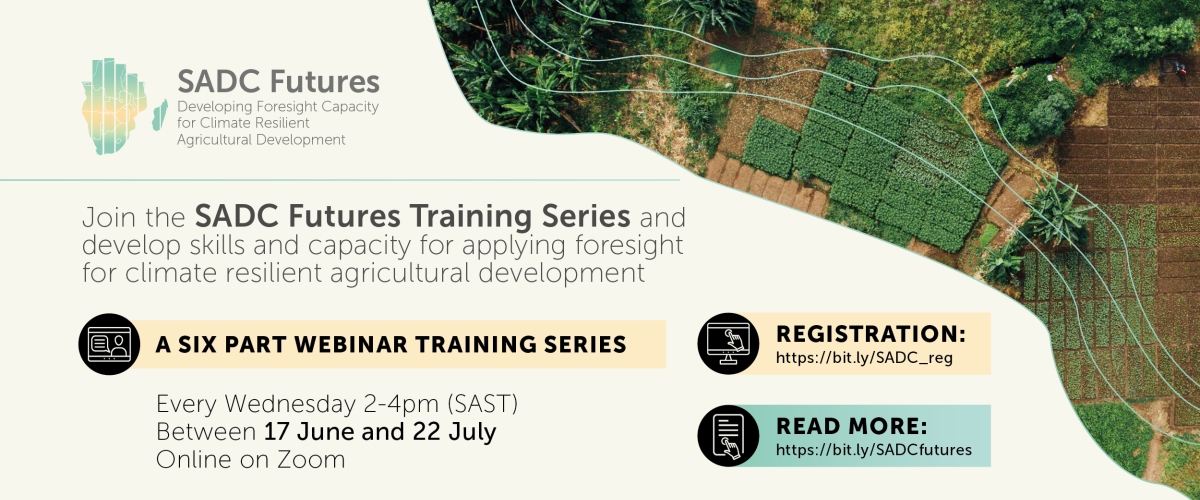
The use of foresight has become an essential tool among development workers for scanning the horizon and planning in advance to mitigate disruptive events before they happen. However, skills for applying this strategic and versatile approach remains low amongst development workers including in the agriculture sector where the use of these tools could be beneficial to ensure better preparedness. CCARDESA together with its partners will be hosting a virtual training webinar series that will equip participants to apply practical and concrete foresight tools and methods to plan for climate resilience in agriculture and natural resource management in the SADC Region and beyond. Participants will engage in interactive exercises during the six webinars and get a complementary Toolkit Manual at the end of each webinar and open access to the Foresight Training Resource Centre and forthcoming e-learning course which will all be accessible on the CCARDESA website.
In these highly uncertain and rapidly changing times, the SADC region, like many regions in Africa, remains fundamentally dependent on a resilient agriculture system and natural resource base. Climate change still poses the greatest threat to the agricultural system. Therefore, technical capacity is needed to address these future impacts and adapt plans, policies and programs. You cannot afford to miss these groundbreaking trainings as they will equip you to practically apply the range of foresight tools and methods for innovative strategic planning and policy formulation for climate resilience. A certification of participation will be awarded to participants who take part in all the six inter-linked training webinars.
The six training webinars will be run every Wednesday 2-4 pm (SAST) between Wednesday 17th June - Wednesday 22nd July. The webinars will be conducted on Zoom.
Webinar 1: Introducing foresight for agriculture and climate change planning and how foresight has been applied in the region (17 June 2020)
Webinar 2: Understanding regional trends, multi-sectoral and systems linkages and climate risks in the region (24 June 2020)
Webinar 3: Visioning, causal analysis and integrating climate resilience into future planning (1 July 2020)
Webinar 4: Introducing scenarios and building multiple scenarios to consider in future planning (8 July 2020)
Webinar 5: Using scenarios to take into account uncertainties and create more robust and transformative climate-resilient policies and plans (15 July 2020)
Webinar 6: Review of key foresight methods and tools and tailoring practical action to agriculture and climate change future planning and implementation in the SADC region
This training is specifically designed for people working for a regional and national government, civil society, research and private sector aligned to agriculture, food systems and climate change across the SADC Region. Policymakers, technical officers, representatives of farmers’ organizations, media, academia, advisory services, women and youth-focused organizations, as well as potential financiers and development partners, are also targeted in these trainings. The training is also beneficial for anybody working at a policy level in terms of foresight and scenario development tools and within other regions across Africa.
To be part of this exciting initiative, please Register here: https://bit.ly/SADC_reg
This training series is a joint initiative of the SADC Secretariat’s Food, Agriculture and Natural Resources (FANR) Directorate, the Centre for Coordination of Agricultural Research and Development for Southern Africa (CCARDESA), the International Livestock Research Institute (ILRI) through the CGIAR Research Program on Climate Change, Agriculture and Food Security (CCAFS) and German Development Cooperation facilitated through the SADC / Deutsche Gesellschaft fur Internationale Zusammenarbeit (GIZ) GmbH ‘Adaptation to Climate Change in Rural Areas’ programme (ACCRA), funded by the German Federal Ministry for Economic Cooperation and Development (BMZ).





